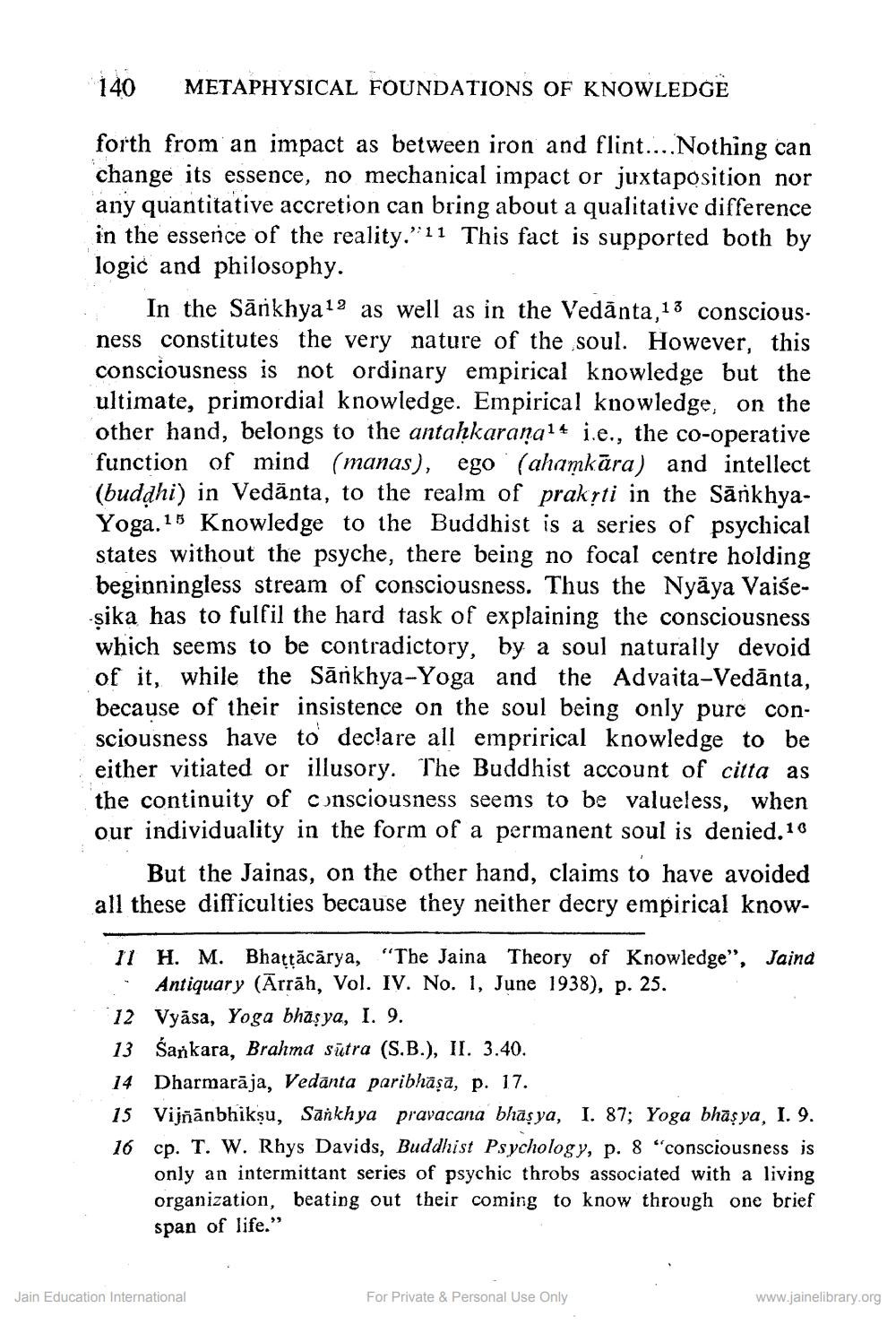________________
140
METAPHYSICAL FOUNDATIONS OF KNOWLEDGE
forth from an impact as between iron and flint... Nothing can change its essence, no mechanical impact or juxtaposition nor any quantitative accretion can bring about a qualitative difference in the essence of the reality."11 This fact is supported both by logic and philosophy.
In the Sārkhyala as well as in the Vedānta,13 consciousness constitutes the very nature of the soul. However, this consciousness is not ordinary empirical knowledge but the ultimate, primordial knowledge. Empirical knowledge, on the other hand, belongs to the antahkarang14 i.e., the co-operative function of mind (manas), ego (ahamkāra) and intellect (buddhi) in Vedānta, to the realm of prakrti in the SānkhyaYoga. 15 Knowledge to the Buddhist is a series of psychical states without the psyche, there being no focal centre holding beginningless stream of consciousness. Thus the Nyāya Vaise-șika has to fulfil the hard task of explaining the consciousness which seems to be contradictory, by a soul naturally devoid of it, while the Sārkhya-Yoga and the Advaita-Vedānta, because of their insistence on the soul being only pure consciousness have to declare all emprirical knowledge to be either vitiated or illusory. The Buddhist account of citta as the continuity of consciousness seems to be valueless, when our individuality in the form of a permanent soul is denied. 10
But the Jainas, on the other hand, claims to have avoided all these difficulties because they neither decry empirical know
11 H. M. Bhattācārya, "The Jaina Theory of Knowledge", Jaind
Antiquary (Arrāh, Vol. IV. No. 1, June 1938), p. 25. 12 Vyása, Yoga bhaşya, I. 9. 13 Sankara, Brahma Sūtra (S.B.), II. 3.40. 14 Dharmarāja, Vedanta paribhāṣā, p. 17. 15 Vijñānbhikṣu, Sankhya pravacana bhāsya, I. 87; Yoga bhāşya, I. 9. 16 cp. T. W. Rhys Davids, Buddhist Psychology, p. 8 "consciousness is
only an intermittant series of psychic throbs associated with a living organization, beating out their coming to know through one brief span of life.”
Jain Education International
For Private & Personal Use Only
www.jainelibrary.org




